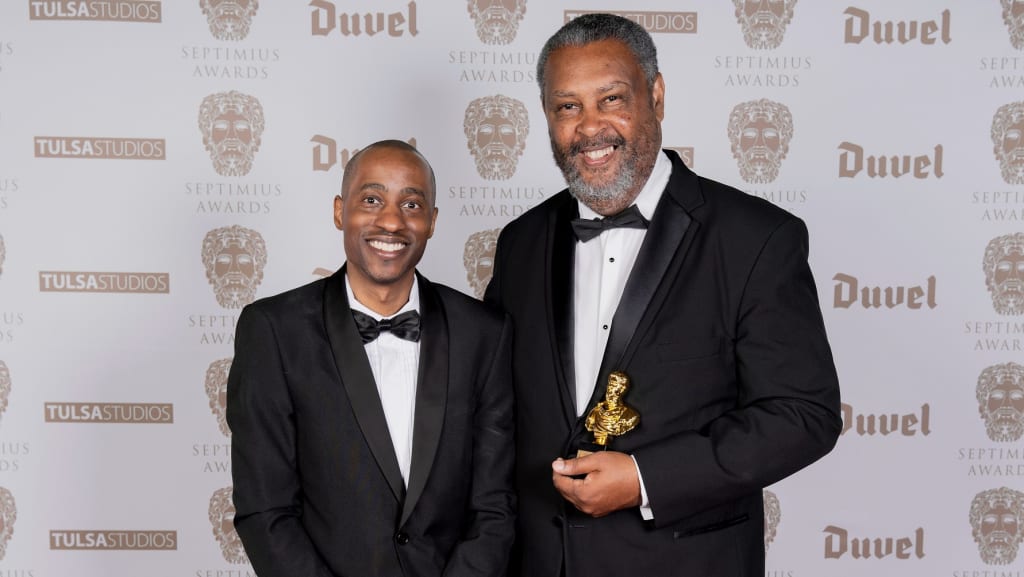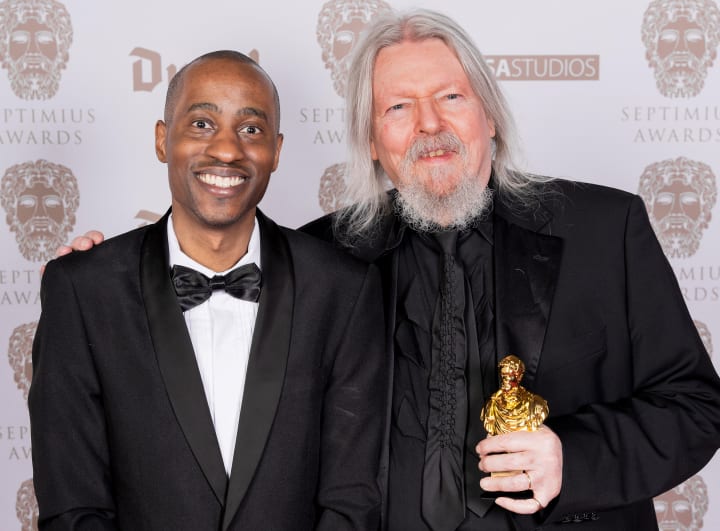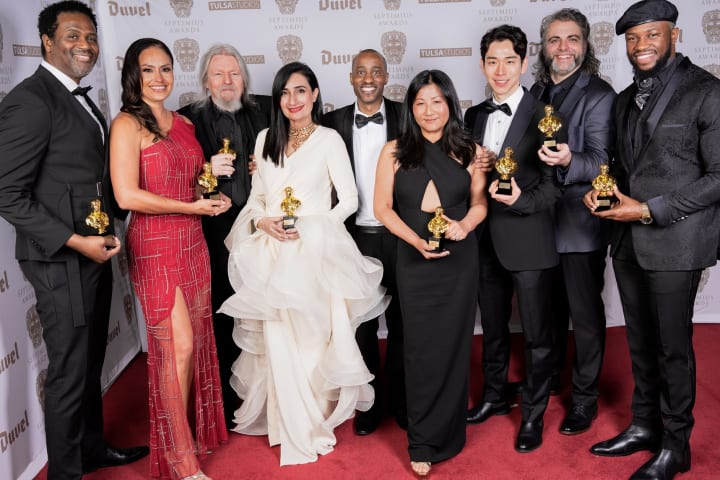Septimius Awards - Diversity in the Film Industry?
A Closer look at the new award ceremony in Amsterdam.

Despite all efforts there is still a lack of diversity in the film and television industry. The Septimius Awards hopes to address this persistent issue. The award ceremony incorporates a unique structure, that increases representation. By splitting the Best Actor, Actress and Best Film category into continents, they ensure an increase in global representation. The founder and director Jan-Willem Breure was born in Rwanda and moved to the Netherlands at age 13. He studied at the KABK (Royal Academy of Art ) in the Hague. In 2022 he founded the Septimius Awards because he witnessed a lack of representation in film and television industry.

The Media Landscape?
In the Netherlands, just like in the rest of the western world, people think, look at and live from the perspective of white people. White is also the norm in the Dutch television and film industry. For years, various Dutch screenwriters, actors, directors of color have made tireless efforts to tell colored stories for film and television. Attempts to create a reflection of society in the existing film and TV offerings. There have been successes every now and then. But unfortunately still too little. And that while film and TV are particularly suitable for reaching large groups of people and raising awareness of the ever-changing society.
For example, the long list of the Golden Calf Competition 20201 shows that of the 24 films, little has been told from a perspective other than white. Not one film has been directed or written by a creator of color. Of the 80 main roles, 5 are played by colored actors. There are no colored people on the board of, for example, the Film Fund, the directors of the Film Academy are white, the policymakers at the NPO are white. And there are many more examples that demonstrate the white standard.
Efforts to achieve a balanced representation of people of color have been going on for a long time. Over the past 50 years, many conversations and ideas have been put forward, but little has changed. There has also been a demand for a different and more representation of colored people in the range for many years. Colored actors are still too often seen as an afterthought or as a stereotype in productions. They are role-confirming characters so the 'inclusivity' box can be checked. Too often we see attempts to tell a colored story failing because of good intentions. The will is often present, but is hindered by ignorance. The responsibility to change this rests with everyone in the industry. We must collectively recognize, discuss and resolve this.
The protest actions in the spring of 2020 are the direct reason for writing the booster diversity. The Black Lives Matter movement that is developing worldwide gave us inspiration and renewed strength to get started in our own field. Now that so many different people have said that black lives matter, actions must be taken to reinforce this view and to shape this movement. Placing the black square on social media or co-signing a call to empower people of color is a step in the right direction, but not enough. It is now time for more diversity, a boost to more inclusiveness of colored makers in the Dutch television and film industry.
In order to be able to do this in the best way, we will draw up permanent criteria and test them over the next 10 years and adjust them where necessary. We also require funds and broadcasters to publish their figures on inclusiveness and diversity. This is to clarify the current state of affairs and what the industry still needs to do.
Ten proposed ways to achieve inclusivity
Diversity has formulated ten points that are absolutely necessary to achieve an inclusive film and TV landscape. Inclusiveness means that everyone participates.
Everyone: Inform yourself and read about issues such as exclusion, diversity, inclusivity, migration. Consult the Black Archives, among others.
Funds and Broadcasters: Ensure that at least 25% of the budget for both films and series at every stage, from development to production, is spent on productions that tell colored stories.
Funds, broadcasters and producers: ensure that colored expertise is involved in the development of colored stories.
Producers: Produce at least one television series or movie starring colored actors each year.
Casting Directors, Producers and Directors: Cast colored actors in all kinds of stories. And if necessary, white actors in colored stories.
Funds, broadcasters, trade associations, training courses: set up an inclusivity committee within your organization that is involved in developing policies to achieve more inclusivity and an inclusivity manager who acts as a confidential advisor.
Funds: Enable financing of collaborative combinations of colored and white actors, screenwriters and directors.
Screenwriters, directors and producers: make sure that you do not tell stories about groups of people without involving those people intensively in the development and realization of these stories. If you create writers' collectives, make sure they consist of different types of screenwriters: young, old, experienced, novice, colored, white, different in gender.
Funds and Broadcasters: Ensure that all committees are a better and more balanced reflection of the society we live in, which is made up of nearly 25% people of color with a migrant background.
In order to achieve the above goals, an industry-wide organization must be established with independent experts who ensure that agreed policies are implemented and adhered to.
But while lofty proposals are always offered to diversity problem. Jan-Willem Breure believes that the only way for people of color to gain equality a is by controlling their own platforms. He believes that true change stems from independence. Which is why platforms like the Septimius Awards are so vital for the film and television industry. Because unlike top down legislation, rules and quotas, fundamental change comes from the fundamental foundations and the appendices.







Comments
Halle Boid is not accepting comments at the moment
Want to show your support? Send them a one-off tip.